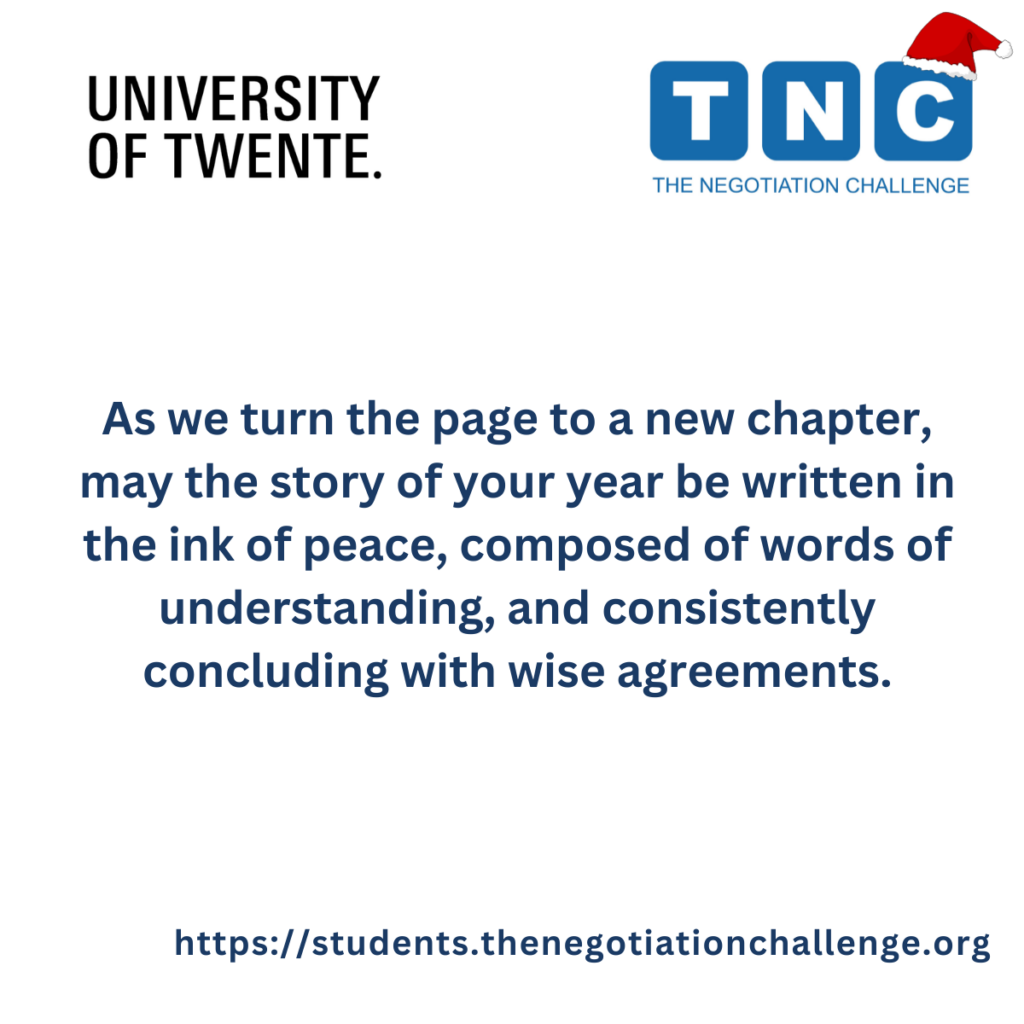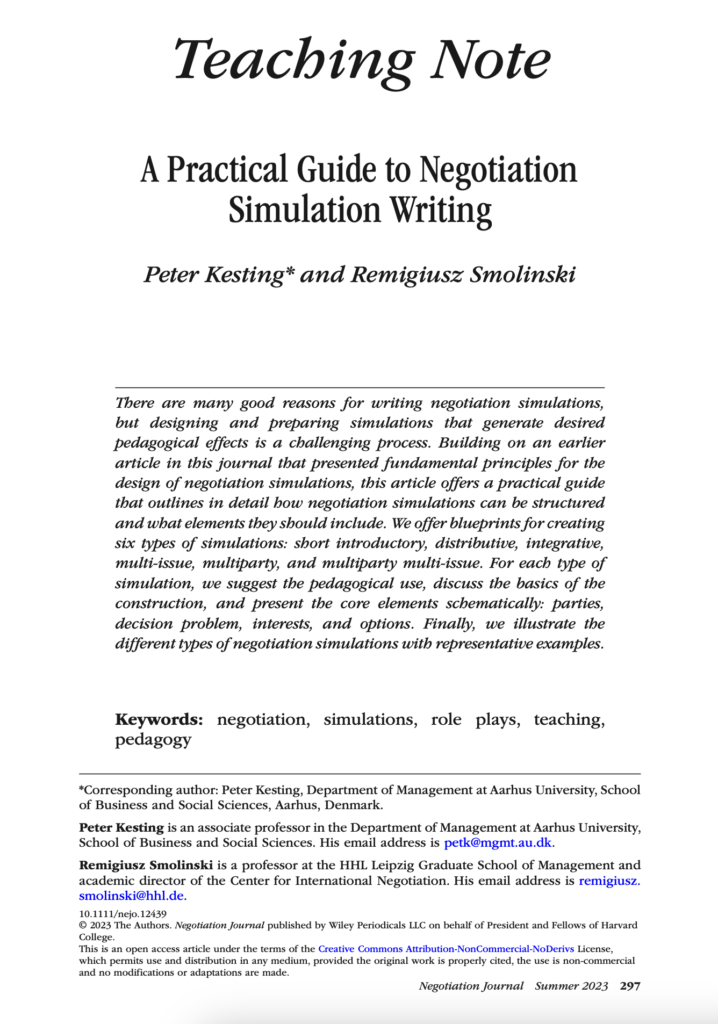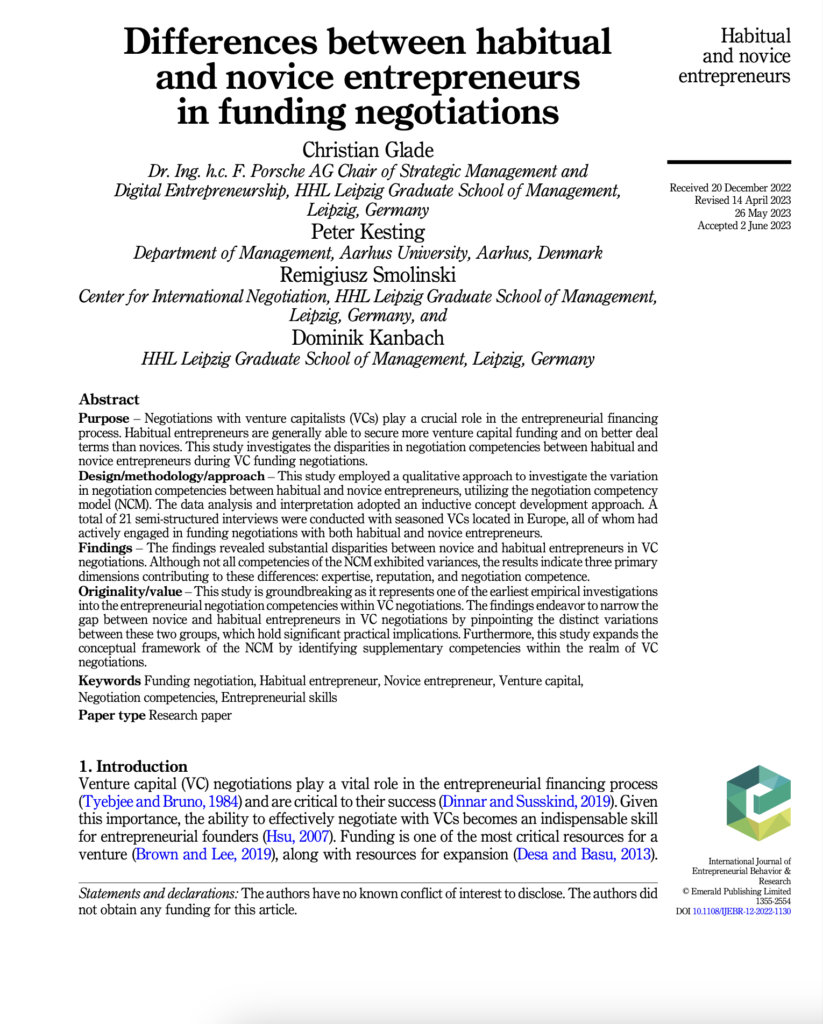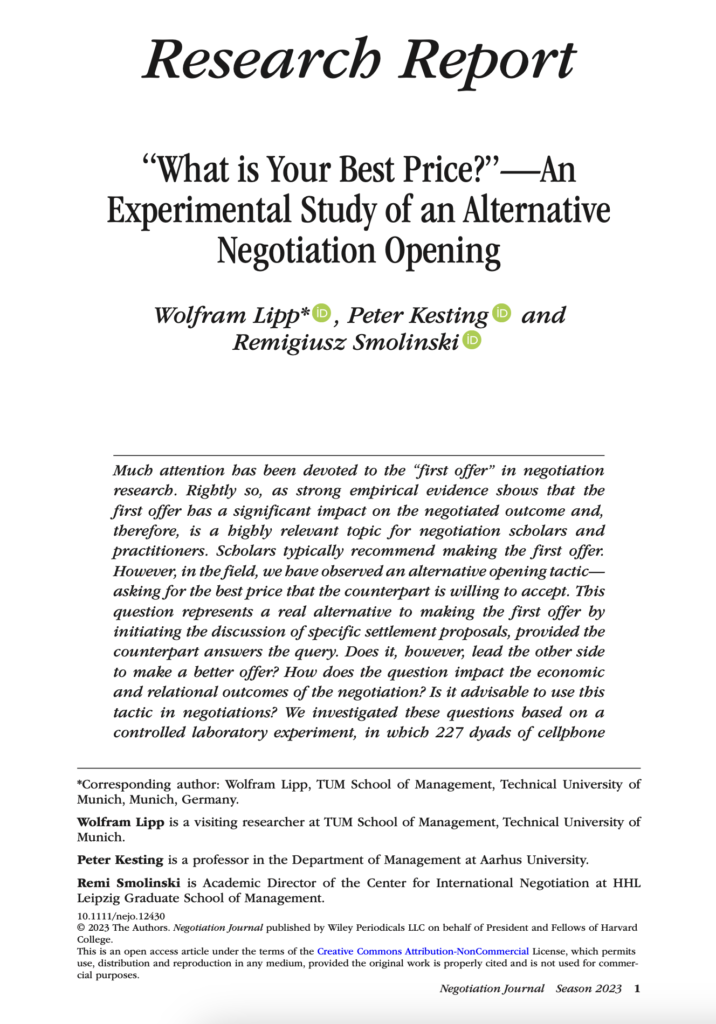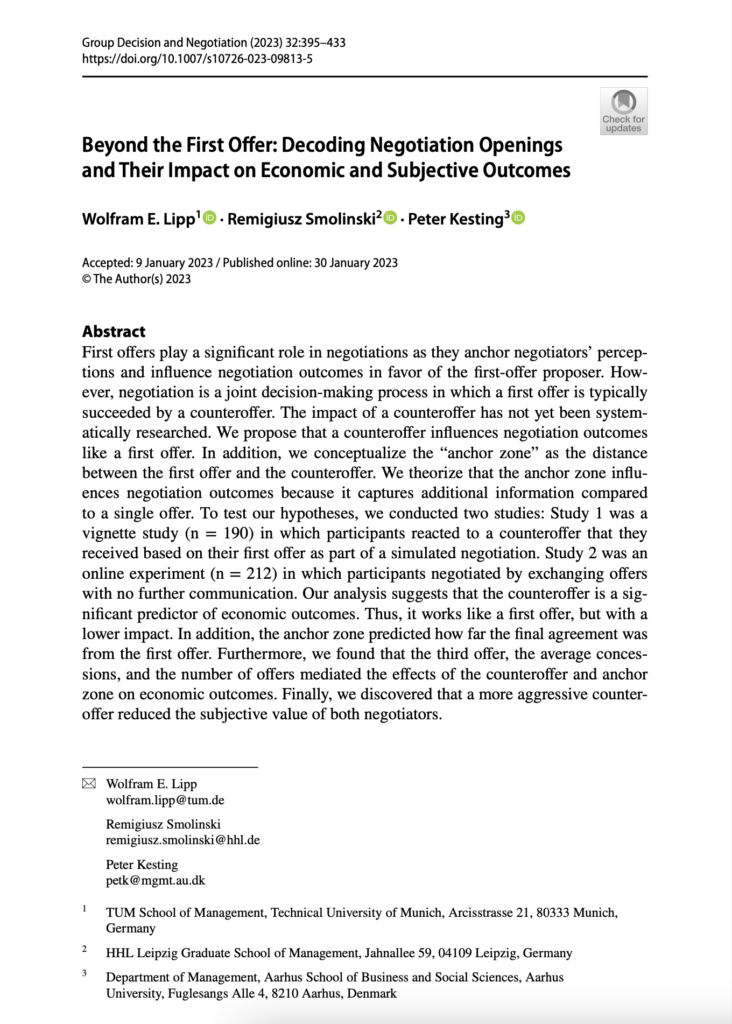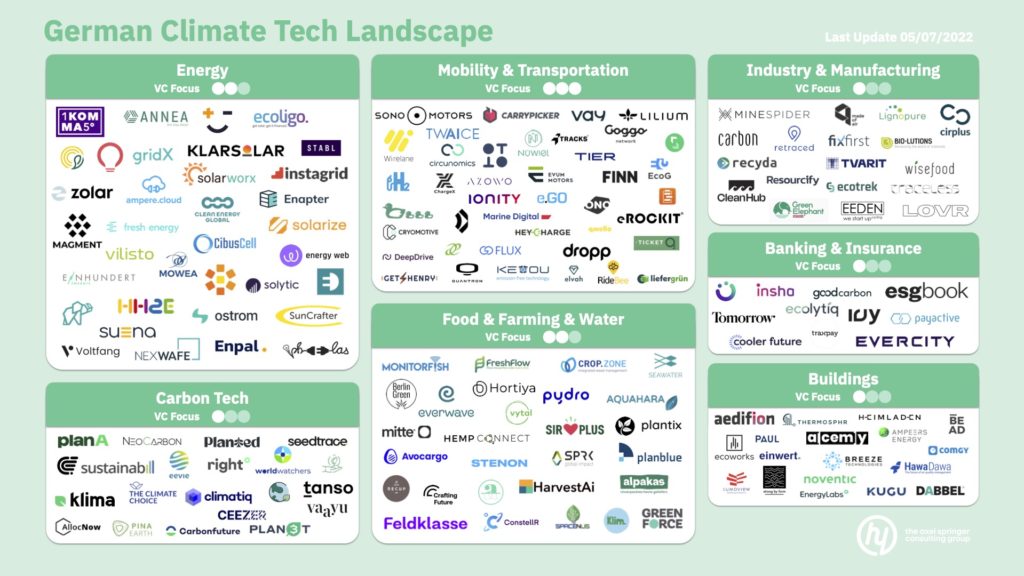We are delighted to share that our paper Beyond the First Offer: Decoding Negotiation Openings and Their Impact on Economic and Subjective Outcomes, co-authored by Wolfram Lipp, Peter Kesting, and me has been awarded with 2024 Gregory Kersten GDN Journal Best Paper Award!
I remember how happy we all were when the paper got accepted by the Group Decision and Negotiation journal, but none of us ever thought it would earn us this prestigious award!
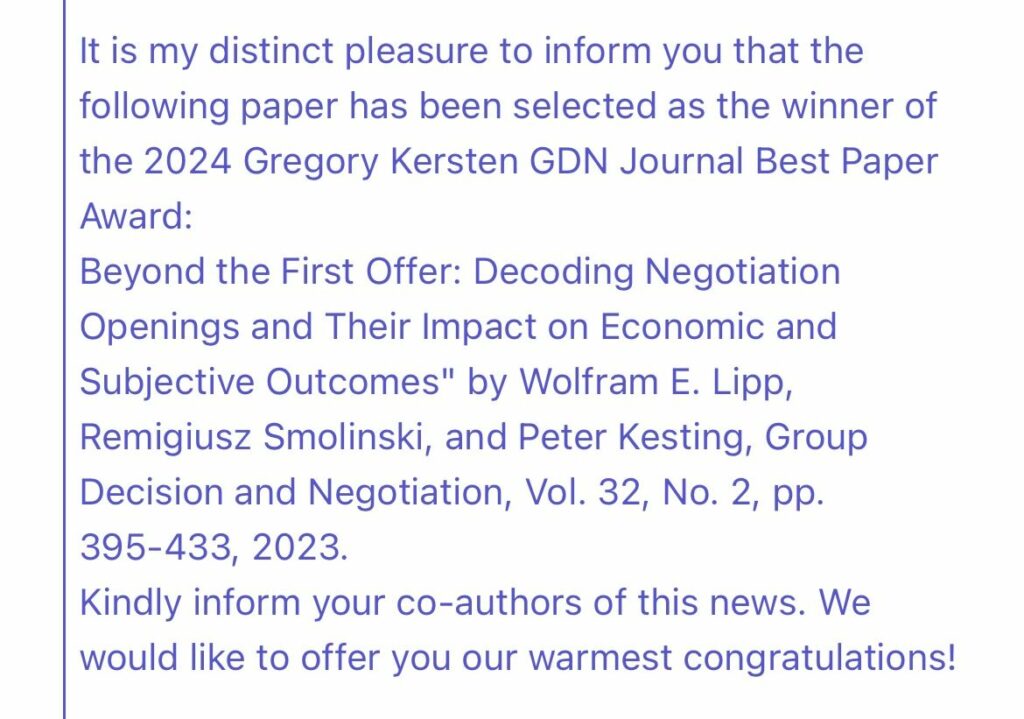
In our paper, we report on the results of two empiracal studies that suggest that counteroffers similarly to the first offers affect negotiation outcomes. We also introduce the concept of an “anchor zone” between initial and counter offers, which significantly influences final agreements.
Gregory Kersten GDN Journal Best Paper Award was handed over during a joint conference from the Group Decision and Negotiation (INFORMS) and Euro-Working Group in Decision Support Systems Technology (EURO) on June 2-5 at the Faculty of Engineering of the University of Porto, in Porto, Portugal.
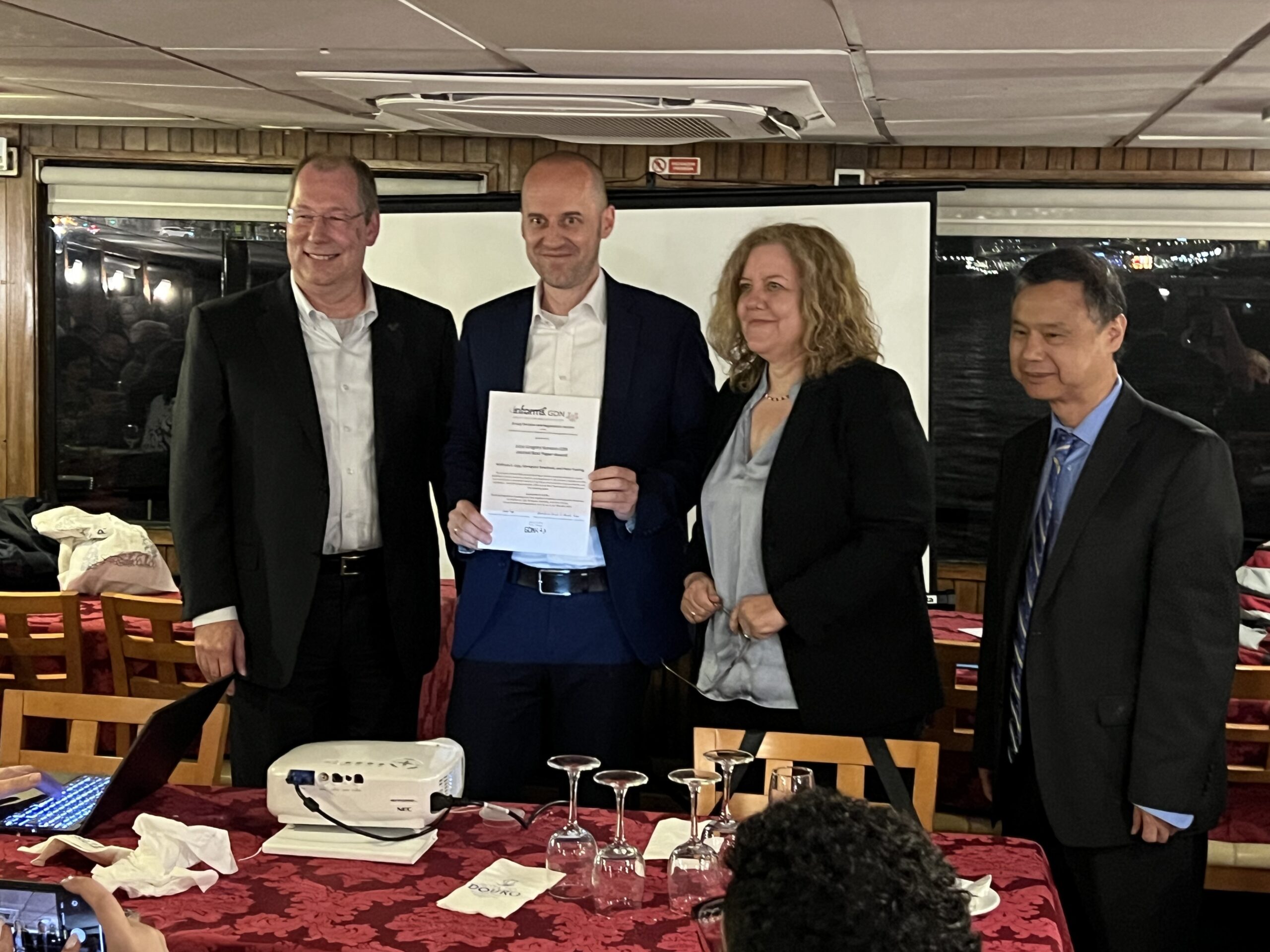
The paper is a result of a great collaboration project between Technical University of Munich, Aarhus University, and HHL Leipzig Graduate School of Management. Thank you Wolfram and Peter for our long discussions and endless revisions. I genuinely enjoyed every minute, and it was definitely worth it!
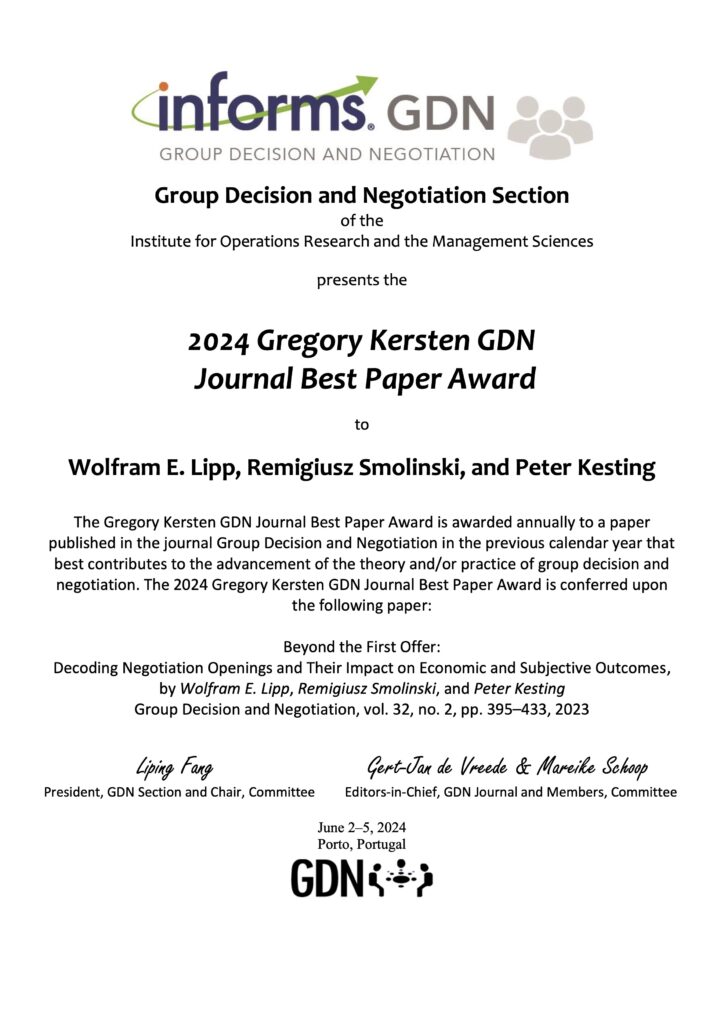
The paper is available in open access and can be viewed and downloaded here. Please let us know what you think!
